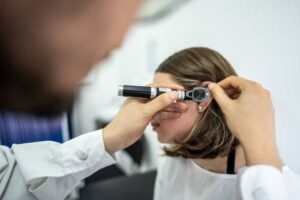Speech Pathologist Adelaide: What Does a Speech Pathologist For Adults Do?
Speech pathologists help individuals improve their ability to make and understand sounds, words, and communication. This can assist clients with developing better relationships, academic achievement, and professional opportunities.
A mixed-methods, cross-sectional survey was employed to examine weekend speech-language pathology (SLP) service provision in Australian healthcare services. Results showed varying presence and models of weekend SLP services across the study sites. For a professional speech pathologist for adults Adelaide, check this out.
Communication
Speech Pathologists are university-trained allied health professionals who are experts in communication and swallowing disorders. They have extensive knowledge, experience and skills to work with people of all ages and life stages.
 Whether your problem is a stutter, difficulty speaking clearly, or understanding others, speech pathologists help you connect with the world around you. They offer personalised treatment plans and strategies that address your specific needs.
Whether your problem is a stutter, difficulty speaking clearly, or understanding others, speech pathologists help you connect with the world around you. They offer personalised treatment plans and strategies that address your specific needs.
For example, a swallowing disorder such as dysphagia can be assessed by a specialised Videofluoroscopic Swallowing Study (VFSS) assessment, also known as Modified Barium Swallow (MBS), performed under x-ray conditions at our clinics or in your home. Our team can also use the Lee Silverman Voice Treatment (LSVT Loud) for Parkinson’s Disease and other neurological voice problems.
Social Skills
Speech pathologists work with people of all ages and backgrounds to help address communication challenges. These include difficulties with speaking, listening, understanding language, reading, and writing, stuttering, and using voice. They also work with clients who have difficulty swallowing food and liquid safely. For a professional speech pathologist for adults Adelaide, check this out.
Speech therapists can teach strategies and provide advice about eating and drinking to help manage difficult swallowing episodes. They can implement Oral Eating and Drinking Care Plans for adults with swallowing risk and work closely with GPs, dietitians, and occupational therapists to provide comprehensive services.
Speech pathologists can also assist with various social skills, including enhancing participation and quality of life through group therapy, family/friend training and 1:1 work. They can also recommend specific Augmentative and Alternative Communication (AAC) systems, including Key Word Signs, Picture Exchange Communication Systems, COMPASS PODD and Proloquo2GO, and aided and unaided speech-generating devices.
Aphasia
Aphasia is caused by damage to the brain’s language centres (a stroke or a brain injury). This can cause difficulties with understanding speech, reading and writing. Aphasia does not make you less intelligent, but it can be emotionally challenging.
People with aphasia often have various other cognitive skills, and many can learn to communicate using gestures or drawing instead of speaking. Speech pathologists can teach them to utilise these tools and help them find ways to express themselves that they can enjoy and be confident with. They may also recommend a psychologist to assist with the emotional aspects of aphasia. Several studies have reported the need for communication between speech pathologists and professional interpreters to optimise service delivery for CALD adults with ACDs. For a professional speech pathologist for adults Adelaide, check this out.
Dysphagia
Swallowing seems simple, but it takes the brain, several muscles and nerves and two muscle valves to work just right. If you have trouble swallowing, you may have dysphagia. Dysphagia can happen at any stage of the swallowing process, but it’s most common in older people and those with a disease or injury that weakens their muscles or nerves.
Your doctor will ask you about your symptoms and may order tests to find out what’s causing your dysphagia. Your doctor might also check your teeth, jaws, and tongue to see if they are healthy and moving well. They will also review how you swallow different bolus consistencies.
Your treatment plan will depend on what’s causing your dysphagia. It might include exercise, compensatory strategies (including posture considerations), bolus consistency modification or medicine to treat the problem that’s pushing your dysphagia.
Voice
Speech pathologists often work with people who have voice disorders. These can include conditions such as a hoarse or weak/ breathy voice, polyps/ nodules in the vocal cords, spasmodic dysphonia, or post-treatment dysphagia (due to surgery, radiotherapy, or chemotherapy) for head and neck cancers.
A strong and clear voice is vital for professional speakers, singers, or anyone who uses their voice frequently. A weak or hoarse voice can be distressing and impact work or social life. Treatment of voice problems can help to restore clarity and reduce the effect of a disorder.






